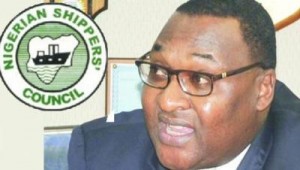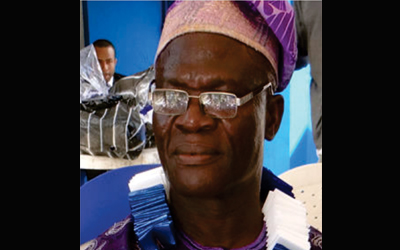 Over the past decades, many ports, with exception of the United Kingdom(UK) and New Zealand ports that were privatized, have introduced private participation in port operations through different forms of concession or lease agreements. One of the key reasons is the efficiency gains through introduction of competition. Can this be said to be same reason for Nigeria’s port reform?
Over the past decades, many ports, with exception of the United Kingdom(UK) and New Zealand ports that were privatized, have introduced private participation in port operations through different forms of concession or lease agreements. One of the key reasons is the efficiency gains through introduction of competition. Can this be said to be same reason for Nigeria’s port reform?
It was with fanfare that Nigerians and port users, but shippers in particular, received the news of the appointment of the Nigerian Shippers’ Council(NSC) as the Interim Port Economic Regulator(PER) in November, 2013. It came after seven years of pussy-footed consideration for a regulator.
To them, it signaled an end to their daily complaints of arbitrary charges, payment for services not rendered, among other unwholesome practices by the port service providers, especially the private terminal operators who were handed over the management of port terminals under concession agreement midwife by the Bureau for Public Enterprises(BPE) in 2006.
21 concessions were granted to 15 different local and international terminal operators under the well publicized illusion that not only the cost of doing business in Nigerian ports will reduce, but the ports will be competitive, among other ports in West African sub-region. Ironically, nine years after the port concession, Nigerian ports have emerged the most expensive in Africa, with the consequence being diversion of Nigerian-bound cargoes to neighboring West African ports.

This development, coupled with the loathsome activities of the shipping lines, which have continuously spurred flurry of complaints from shippers and their agents, made it exigent for a port economic regulator which was originally not created before the concession exercise.
To appreciate the place of NSC, it is important to understand who an economic regulator is, the responsibilities before it, the environment under which it operates, what it has done, how the same responsibilities are carried out in other countries, the expected impacts, and their assessment, and what are the standard global practice as well as what NSC has in the offing under the new port order?
“Regulation consists of requirements the government imposes on private firms and individuals to achieve government’s purposes. These include better and cheaper services and goods, protection of existing firms from “unfair” (and fair) competition. Failure to meet regulations can result in fines, orders to cease doing certain things, or, in some cases, even criminal penalties”, according to Library of Economics and Liberty.
While Economic Regulation entails rules that control business entry and price controls; Social Regulation refers to the broad category of rules governing how any business or individual carries out its activities, with a view to correcting one or more ‘market failures’. Example of Economic Regulation could be the Nigerian Communication Commission(NCC) for the Telecommunication industry and the NSC for the Port industry in Nigeria. Social Regulation, on the other hand, is applicable to the National Agency for Food, Drug Administration and Control(NAFDAC), in the pharmaceutical industry.
Therefore, NSC as the Economic Regulator of the port system in Nigeria, in line with its mandate and framework has the responsibilities of monitoring the markets and setting of tariffs, revenue, or profits; controlling market entry or exit; maintaining fair and competitive behavior and practices within the port sub-sector.
For clarity purpose, NSC got a presidential order, appointing it as an interim PER. This order, which was subsequently gazetted and signed by the former President Goodluck Jonathan on 25th March, 2015, vested the responsibility of economic regulations on NSC as to: “Regulate economic activities at Nigerian ports; Set and enforce standard operating guidelines for Nigerian ports; Regulate Nigerian ports concession agreements; and carry out other related acts that are incidental to its role as the economic port regulator”.
According to the presidential order, the appointment of the Council as economic regulator was done to “address the negative impacts of port concession activities on the economy due to the absence of an economic regulator and to realize the optimal benefits of the Federal Government of Nigeria’s port reform process.”
Consequently, the Council ,under this order now regulates all regulated service providers, which includes: the Nigerian ports Authority(NPA);seaport terminal operators; shipping companies and agencies; off-dock terminal operators; cargo consolidators; logistics service providers; freight forwarding and clearing agents; inland container depot operators; stevedoring companies; Council for the Regulation of Freight Forwarding in Nigeria(CRFFN); and any other port service provider or user.
This order is cited as the Nigerian Shippers’ Council (Port Economic Regulator) Order, 2015.
A set of prescriptions were outlined as regulations, similar to what obtains in South Africa’s regulatory framework.
According to the former minister of transport, Senator Idris Umar, whose ministry backs the Council on this duty, “In exercise of the powers conferred on me by section 9 of the Nigerian Shippers’ Council Act, 2004 and all other powers enabling me in that behalf, I, Senator Idris A. Umar, the Minister of Transport, make the following Regulations(Port Economic Regulations), 2015”.
Under this regulations, the Council is to (a) Provide guidelines on tariff setting in order to guard against arbitrariness;(b) monitor and enforce standards of services of delivery to ensure availability, accessibility, affordability, stability, predictability and adequacy of services;(C) encourage competition and guard against the abuse of monopoly and dominant market position;(d) perform mediatory role among stakeholders;(e) establish accessible and modern dispute resolution mechanisms;(f) regulate market entry and exit;(g)promote efficiency in the provision of port services;(l) minimize high cost of doing business and prevent its inflationary effect on the Nigerian economy;(i) encourage private sector investment in the port sector;and (j) monitor and ensure compliance by all parties with the provisions of port concession agreements.
Port Regulations In Other Countries
Nigeria’s Port regulatory system is peculiar in context but largely similar in content with some countries of the world.
Within countries in Europe, Africa, Asia, America and Australia, Nigeria is the only country where port concession or privatization preceeded the appointment of an economic regulator, an oversight that has become a blessing in disguise because it afforded the regulator the opportunity of experiential inclusiveness in the scope of regulations as covered by law.
Again, Nigeria is the only nation where a government institution, which protects the interest of shippers was designated a port regulator. However, global application of port regulation has shown that there is either heavy, light regulation or none at all.
In South Africa, the Port Regulator is an independent regulator, funded by fiscal allocation from the national government. The Regulator has a set of directives and policy principles that explain the regulatory framework.
India, Brazil and Spain equally have a Port regulator vested with the power for tariff regulation, ensuring market access requirements, performance standards, compliance and adjudication of complaints.
While port of Rotterdam, New York, Tema in Ghana regulate their port via the landlord port model; Italy and France located their regulatory function in the port sector ministry.
Before The Port Regulator
For several decades before and after Nigeria’s independence, the port system was managed via the landlord port model with the NPA as the institution. The ports were seen as national assets, prices of services were subsidized, no competition, quality of services not measured, informal activities and pricing of services were the order of the day.
It was a heavy government monopoly riddled with inefficiency.
Then came the port concession in 2006. Against all expectations, private sector monopolies set in. A cartel was created among the terminal operators to engage the government and port users in event of complaint.
Arbitrariness in port services heldsway, the envisaged efficiency and competition took flight. Rather than invest in port development and infrastructure, the terminal operators raised investible capital from their cost structure, with pricing so expensive that shippers began to divert their shipment to neighbouring countries ports. The huge irony of the port concession is that rather than attract foreign exchange into the country, funds are repatriated overseas.
The inefficiency in the procedures and operations of agencies and service providers, and even users is negatively affecting and undermining Nigeria’s competitive advantage in international trade. The underpinning principle behind the port concession is competitive advantage through the pricing of port services to attracting more patronage.
However, a comparative analysis of terminal charges between Nigeria and Benin Republic, today shows that Cotonou Port is more competitive. Nigerian ports charge N62,682 for 20 foot Container, while Cotonou Ports charge N24,000 for same, with the difference of N38,695. Similarly, for 40 foot Container, Nigerian Ports charge N87,62; Cotonou Ports charge N48,000, with the difference as N39,695.
Shipping company charges among Nigeria, Ghana and Benin Republic revealed that Nigeria is higher with N49,500; Ghana,N20,000; Benin Republic,N17,325. Container deposits are never refunded to shippers in most cases by shipping companies, or refunded after months and years of complaints or threat of litigation.
All these necessitated the appointment of a port economic regulator. But since appointed and it began work in February ,2014, what changes have taken place?
The Ports Under Economic Regulator
The appointment came with frenzy from some quarters in the port system, but there was a clear statement that ,”it is no longer business as usual.” They engaged port service providers and port users through courtesy visits and stakeholders’ fora, deploying moral suasion. However, the terminal operators under the umbrella of the Seaport Terminal Operators Association of Nigeria(STOAN) and foreign shipping firms went to court to challenge the authority of the regulator-NSC to cut their excesses. NSC had upon assuming the regulatory status written to the shipping lines and terminal operators to stop their unilateral imposition of Shipping Line Agency Charge(SLAC) at the current rate of N31,700 per TEU; unilateral review of progressive storage charge by terminal operators;non refund of container deposit by terminal operators and upward review of container cleaning and maintenance fee by shipping companies currently at the rate of N2,500.00 per TEU. NSC had enumerated these illegal charges as the factors that make the cost of clearing cargo in Nigerian ports very expensive.
According to the Regulator, the Nigerian economy lost a total of N63,474,959,000.00 in 2013 to terminal operators and multinational shipping firms through illegal collection of container cleaning fee, progressive storage charge and SLAC.
As part of the enforcement mechanism, NSC directed the terminal operators to increase cargo free storage period in Nigeria to Seven(7) days as obtainable in Ghana and Benin Republic. In Cameroun, it is Eleven(11) days.
Also, NSC had instructed the shipping firms to reduce their charges, SLAC by 10 percent based on the applicable rate in 2013. The current SLAC in Nigeria is N23,850.00.
Furthermore, the Regulator equally increased free demurrage period from five(5) days to ten(10) days. Before this intervention, the comparative free demurrage period in selected African countries shows that Nigeria has the least number of days-three(3) days, while Benin Republic has ten(10) days; Ivory Coast, nine(9) days; Ghana, seven (7); Namibia, fifteen(15) days.
The Federal High Court, Ikoyi, Lagos had also ordered the terminal operators to refund all illegal charges collected over the years, amounting to N150billion to shippers and port users. This is one of the judgments delivered in the suit filed by STOAN and shipping companies against NSC, being, a consequence of economic regulatory enforcement.
NSC is to commence the management and administration of Cargo Tracking Note(CTN) as an advanced cargo information tracking system as a means of ensuring safety and security of cargo in international trade.
Since pronounced regulator, NSC has strengthened its complaints and arbitration mechanism, boosting confidence in port users and shippers, with the result being thousands of complaint handled with dispatch. There is a complaint unit dealing with that in collaboration with the global shippers’ forum working with the International Maritime Organisation(IMO) on facilitation.
The Council, in collaboration with the Council for the Regulation of Freight Forwarding in Nigeria(CRFFN) is working on harmonizing clearing charges for freight forwarders and clearing agents, to reduce high cost of delivering goods through a regulatory mechanism. The work volume in the Council has more than tripled.
To clear congestion on the road, eight(8) truck transit parks have been identified for development under a private public partnership(ppp) model. Under this, the port access roads will be decongested off stationary and dilapidated trucks. As a result, an automated system is being worked out at the International Trade Fair Complex Lagos as a truck terminal, off-dock terminal and inland container depot. With this, truck traffic on the roads will be reduced as they will not be on the roads until electronically called up for service.
In its quest to achieving competitive and comparative costs in the port system, the NSC has engaged the Association of Maritime Truck Owners(AMATO), National Association of Road Transport Owners(NARTO) and other truck associations to find a common ground on cost fixing.
Emerging New Port Order And Expectations
In leading ports of the world, regulations of the private sector service providers ensures adequate level of competition, the use of suitable contract formats, carefully worded contract clauses and the inclusion of relevant and controllable performance measures in lease- holds and concession agreements.
The new port order is expected to enthrone port policy framework, legal framework, anti-trust law and regulatory principles as well as strategic plans, with periodic regulatory reviews on the quality and relevance of the regulatory policies and methods.
Already, as part of what to expect, the NSC, Nigeria Customs Service(NCS) in partnership with the United States have commenced border information sharing system and centres to formalize informal trade within the West Coast , all in the bid to increase revenue generation.
Moreover, the impact of the regulation as expected on the activities of the terminal operators, will include, guaranteed return on investment and profitability; availability in processes and procedures; assurance of level playing field for all.
The impact as envisioned in the new port order on government are: improved revenue generation; improved infrastructural development; creation of efficient market; reduction in cost of doing business; improvement of the nation’s global competitive index and consequent attraction of foreign direct investments.
From the shipping companies, improved delivery of marine and terminal handling services that will bring about reduced turn around time of vessels and reduced cost of vessel operations, are expected in the new dawn.
The freight forwarding sub-sector, which is currently on a march to professionalization is expected to be eliminated of touting ,and ensure harmonized clearing processes and procedures , even as a platform for the promotion of global linkages and networks would have been created in the new port order.
For the NPA and NCS, the impact of the regulation in the transport and logistics chain is the enthronement of clearer standard operating procedure derived from international laws(Conventions)and practices; transparency, efficiency and effectiveness; improved revenue generation; improvement of competitive advantage in the sub-region and improved level of compliance by importers, exporters and freight forwarders.
Port services consumers will experience reduction in cost and time of cargo clearing; cargo duel time and general trade cycle reduced, while there will be decongestion of port access roads, leading to improved truck transit time at ports; re-fleeting of rickety trucks, installment of electronic gating and call system and guaranteed loading opportunity for trucks.
Assessment Of The Economic Regulations, So Far: Stakeholders’ Viewpoint
Mr. Aminu Umar, President of Nigeria Ship Owners Association (NISA): The NSC was appointed the ports regulator about a year or two now. And since then, they have been involved in very positive dialogues with stakeholders in the industry. We have seen them talk about how to reduce the cost of clearing cargo at the port and reduce cost of demurrage accrued over time because of delay at the port. In this area, I think the NSC is doing a lot. Another major thing they are doing is the enlightenment programmes through which they educate a lot of shippers on their right and what they stand to benefit in the event of conflicts between the parties involved. So, I think they are really doing well in their new role.
Chief Eugene Nweke, President, National Association of Government Approved Freight Forwarders(NAGAFF)
What the NSC has done in the last one year is to break the barriers, by identifying the service providers in the sector that require attention, engaging them and proffering solutions by creating a standard pricing system. This was articulated within one year. They have also sustained enlightenment through advocacy, and today nobody will say that he is not aware of NSC and its new regulatory roles. I think they have covered a large aspect of this. Within this period, NSC has gone through the Federal Executive Council (FEC) and the National Assembly to get a gazette of this function on the existing Act. This means that any doubting Thomas, claiming that they do not have legitimate powers for regulation must be making a mistake.
Again, NSC stated that certain practices in the industry that are inimical to the growth of port industry and international trade be abolished, but they were challenged in court, not just small court, but High Court, followed by Appeal Court. These are some of the things we want to see NSC do, by having these cases decided in court and set precedence for the operators. So, they are on track.
Now, using the volume of complaints received since made a regulator, so many complaints and letters are before them and they give them attention in their merits. If you find a shipowner who has one or two ships, who finds solace in the Council’s intervention, you will appreciate the work of the Council. How do you assess the complaint unit? It is response time. No complaint goes to that unit that does not receive attention the same day.
On enforcement, we must not forget that the shipping and port industry is full of cabals, who have tried to stop them in enforcing their duties through various means, including bribery if possible. But they have remained steadfast to their roles. So, by and large, NSC in the last one year has proved that it is ready to work, even as a child of necessity. I hope you know that enormous resources have been channeled towards capacity building in NSC, to reposition the members of staff to withstand the challenges ahead. And for any agency to have made this kind of impact, is either that they have been in the port system or that they understand the port system. That is what is going on well for them.
On compliance level under the regulatory framework, there is what we call, system breakdown, which has been entrenched over time. It is not breakdown because on building has fallen but because of the level of corrupt practices among the operators. If you appreciate this, you will further understand that some of these things were done through legal agreement or memorandum of understanding(MoUs) signed by the government through its agencies. In this case, NSC has to embark on due consultations and dialogues, which are paying off. So, we expect that with their persuasive approach, in another six months, we shall expect reasonable changes. Some of these hide and seek games will soon stop. But one thing very clear is, collecting charges for services not rendered is being avoided by the service providers because NSC is working.
On enforcement, remember that this is mostly done by the legal department because it is usually legal issues. They have to use the power of coercion to arrest and detain culprits. They need to get this from the government and enforce the circular to the letter. But they need to take things one at a time to avoid having many fists in one mouth.
In Conclusion, an attempt at assessing the NSC as the port economic regulator under one and half year on the impact in the sector shows that it is breaking the barrier of prejudice for acceptance, with the possibility of ultimately achieving compliance. Consultation, compliance, cost, enforcement and monitoring were used as measurement indices to assess the impact of NSC in the eighteen months in the port sector.
So far, the stakeholders and a section of the media have concluded that NSC is working but requires more aggressive positioning mix to cover its scope of regulatory functions. Performance benchmarks, review of methods and enforcement as well as close monitoring of all the areas regulatory duties are key. NSC should not be shy to partner the private sector or out-source duties where necessary for enhanced impact.
A Consumer Affairs Department has been created under which the Complaint Unit is situated, as part of the general re-organisation of the council to face the challenge of regulations.
 MMS PLUS NG – Maritime, Aviation, Business, Oil and Gas News Online Newspaper with coverage in Maritime, Oil and Gas, Aviation, Power and Energy as well as Financial News
MMS PLUS NG – Maritime, Aviation, Business, Oil and Gas News Online Newspaper with coverage in Maritime, Oil and Gas, Aviation, Power and Energy as well as Financial News









